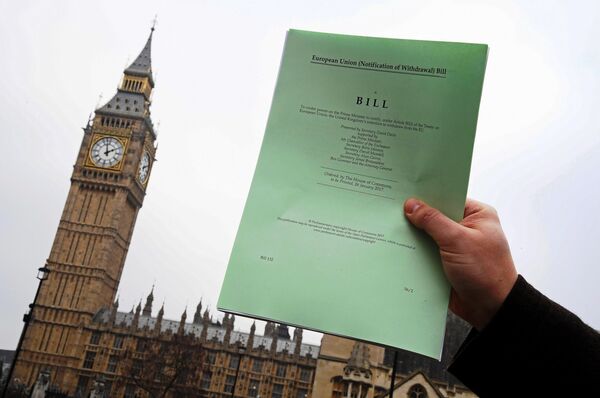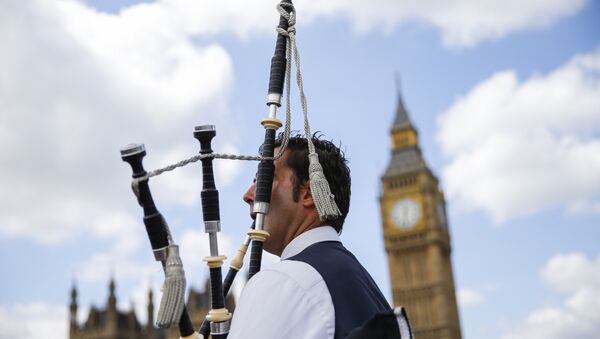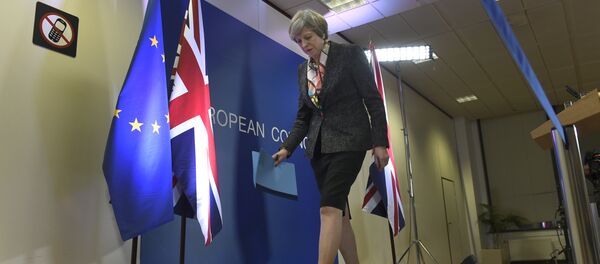The First Minister of Scotland, the Scottish National Party's Nicola Sturgeon, has called for another referendum of Scotland's membership of the United Kingdom — a re-run of the one in September 2014, which resulted in 55.3 percent voting to remain part of the UK.
Scotland deserves an informed choice on our future once the terms of Brexit are known. Read my speech here. #scotref https://t.co/42hq4RmgKs
— Nicola Sturgeon (@NicolaSturgeon) March 13, 2017
However, in the Brexit referendum, although the UK-wide result was 52 percent to leave, in Scotland it was 67.2 to remain and Sturgeon says she wants a second referendum once the outcome of the Brexit negotiations becomes clear.
Scotland must have choice over future @ScotGovFM @NicolaSturgeon sets out plan for referendum in face of hard Brexit https://t.co/a9DPW2rmU8
— Scottish Government (@scotgov) 13 March 2017
That has now thrown the already complicated Brexit talks into chaos, as the government is already facing the Herculean task of negotiating Brexit with 27 other countries, each with their own agendas. With the Scottish independence issue looming its ugly head, those negotiations have become even more burdensome.
"We're expecting the PM [Theresa May] to make an announcement […] giving her thoughts on this and she may [block the referendum], but that would be extremely high-risk on her part because it would be seen to be blocking the people of Scotland's right to make their decision," Professor Nicola McEwen, Associate Director of the Scottish Centre on Constitutional Change at the University of Edinburgh told Sputnik.
"What is more likely is that she will try and push a referendum vote to further down the road to, perhaps, after Brexit negotiations have concluded. Possibly even after he Uk has withdrawn from the EU. What the PM won't want to do is contend with an independence referendum in Scotland at the same time as she is embroiled in these delicate negotiations with the rest of the EU," she said.
Legal, Political Challenges
The whole process of Britain beginning the process of getting out of the EU has sparked one of the biggest political and constitutional crises in the last 50 years.
The referendum came about after former Prime Minister David Cameron was forced into promise on to put an end to the deep divisions within his own party and the rise in support for anti-EU party UKIP.

Although it was official Labour Party policy to remain in the EU, its leader Jeremy Corbyn was heavily criticized for running a low-level campaign to remain — he being a long-term euroskeptic. The result, June 24, 2016, came as a shock the Westminster, where most MPs thought Britain would vote to remain. The public voted 52 percent to 48 to leave, sending shockwaves through Europe.
Cameron resigned as PM, with Theresa May taking over, Corbyn was forced to go through a leadership challenge that he won, but which split his party down the middle — a position which many say has made them unelectable.

Then came a legal challenge from — among others — businesswoman Gina Miller over whether the prime minister alone had the power to trigger Brexit, or whether it should be by an act of parliament. After a High Court ruling, the Supreme Court held that only parliament could trigger Brexit, forcing May and her cabinet to push a bill through parliament.
UKSC confirms (by majority of 8:3) that an Act of Parliament is needed before Article 50 can be triggered 1/2 https://t.co/QUny4FUZIr
— UK Supreme Court (@UKSupremeCourt) 24 January 2017
Negotiating Position
Her problem was that many in parliament tried to use the bill to force conditions on her government ahead of crucial negotiations with Brussels on Britain's exit from the EU and its new relationship post-Brexit. The government accused opponents of trying to give Britain's negotiating position away before the talks had even begun.
Then the House of Lords introduced two amendments, forcing the government to confirm the position of EU workers currently in Britain within three months and then giving parliament the right to veto any final deal over Brexit.
The bill eventually went through its final stages, March 13, without amendment, giving May the authority to trigger Brexit, without any preconditions. However, she has held off from actually doing so, because Scotland has now thrown Brexit into chaos.



